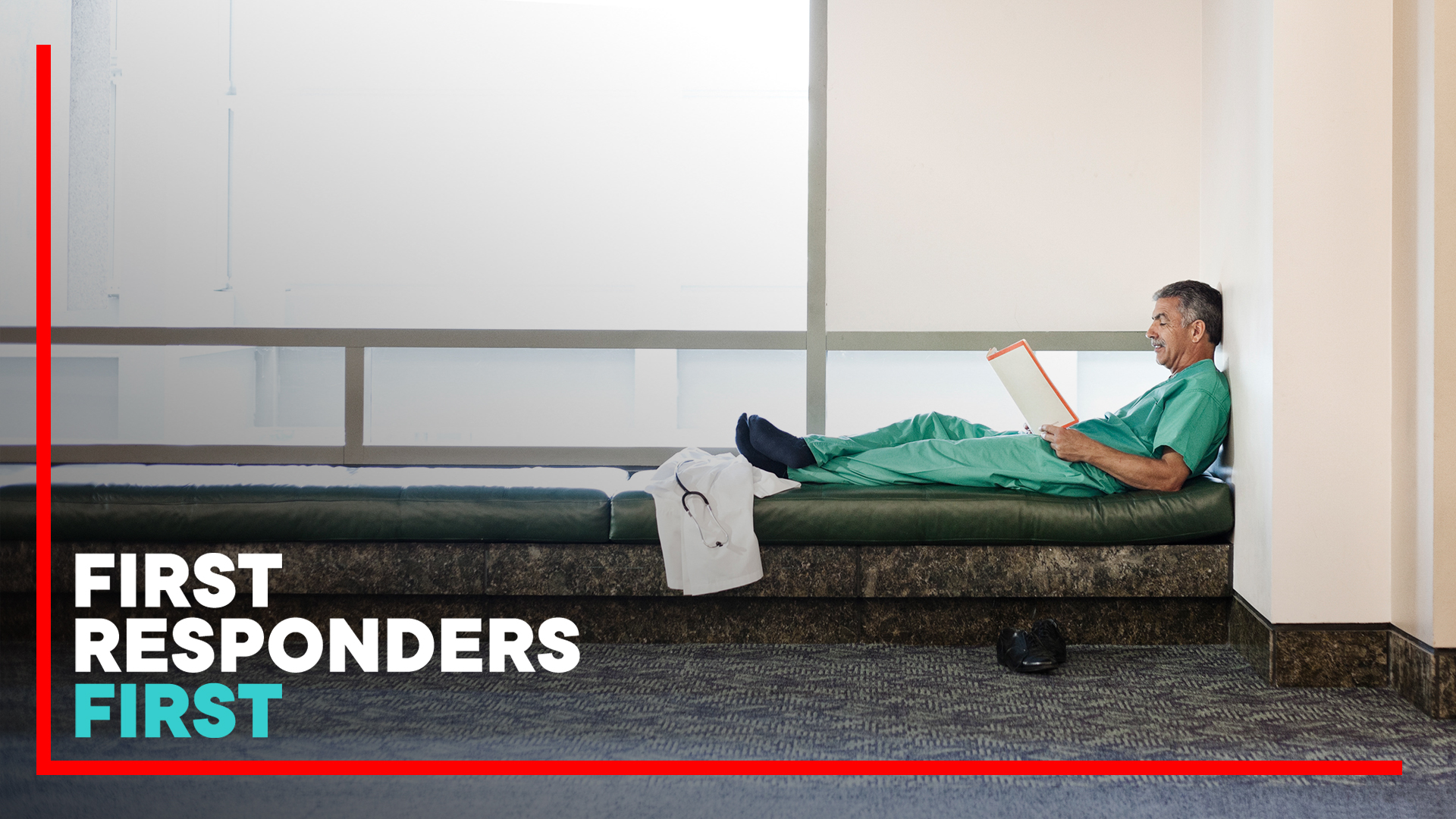While millions of people are staying home to flatten the curve of coronavirus infections, healthcare professionals — the frontline workers of this crisis — are asked to go to work and protect their communities.
And while it’s always been important to practice healthy habits in this line of work, it’s more essential than ever to implement — and continue to build — those habits in the midst of global pandemic. Whether you’re a home health aide, social worker, community health worker, nurse, or physician, building healthy habits around sleep, movement, nutrition, and hydration will help you mitigate stress, avoid burnout and meaningfully recharge while you navigate this crisis on the front lines.
Healthy eating, for example, can help reduce depression and anxiety amongst first responders, according to a paper in the Journal of Emergency Medical Services. And research from the University of Tübingen in Germany found that sleep helps our immune system recover, which is essential for healthcare workers who are exposed to diseases and infections daily.
If your health routines could use a little reboot, take comfort in the knowledge that building new healthy habits is simpler than you may think. In fact, behavior science, including research published in the British Journal of General Practice and Psychology, Health, & Medicine, tells us the most successful habits start with incredibly small steps. Here are three Microsteps — small, science-backed actions you can start taking immediately to build habits that significantly improve your life — that will help you reset and recharge:
Take a one-minute stretch break whenever you can throughout the day.
You’re already moving a lot during the day and coping with a heavy physical load, but make sure to integrate brief stretch breaks to support your body. Stand up, change positions, stretch — anything to get your blood flowing. You can even lead your fellow workmates in a quick stretch in the break room.
Keep a water bottle at your station or in the break room. You’ll avoid the temptation of soda and other sugary drinks. Plus, refilling your bottle throughout the day will provide you with much-needed micro-moments of rejuvenation.
Take a short nap, or close your eyes for a few minutes, if you worked an overnight shift or didn’t get the sleep you need. Resting and recharging for five or 10 minutes will boost your energy to be there for your next patients.
With additional reporting from Mallory Stratton.
Click here for information about how Thrive Global is supporting our healthcare workers on the front lines of the coronavirus pandemic, and find out how you can support the cause by donating to #FirstRespondersFirst.


